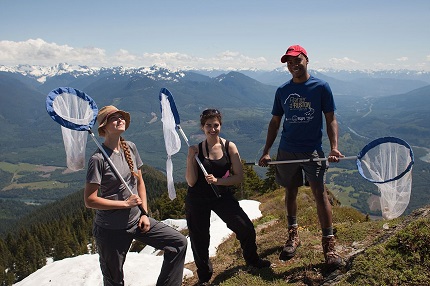How the Travel Ban is Affecting Science
Essential question: What would be two ways that scientists who need to work together, but cannot be in the same place, could collaborate?

Share
February 17, 2017
Essential question: What would be two ways that scientists who need to work together, but cannot be in the same place, could collaborate?
Share
Listenwise helps teachers use stories from public radio n their classrooms. To find more stories and lessons for your middle and high school ELA, social studies, and science classrooms you can sign up for a free Listenwise account! Teaching Strategies for using Listenwise.
Story Description:
President Trump’s travel ban has already affected tens of thousands of people traveling to and from the United States. Among the affected groups are scientists. Scientific discovery often depends on the ability to communicate and collaborate with experts from around the world. However, with the travel ban in place, many are forgoing the trip to the United States entirely. Listen to learn more about specific examples of affected scientists and the impact the travel ban is having on the scientific community of the United States.
Listening Comprehension Questions:
· Why is it surprising that the scientist, Hanan Isweiri, was not allowed to enter the country?
· What action was taken to make student visas a valid way of entering the country again?
· What do you think scientist Rush Holt meant when he said, “The freedom to communicate and collaborate with people around the world are fundamental principles for science”?
· What would be two ways that scientists who need to work together, but cannot be in the same place, could collaborate?
· In your opinion, what are the benefits and challenges of allowing foreign scientists into the country?
· How would you make the argument that the U. S. should or shouldn’t make it easier for foreign scientists to enter the United States?
